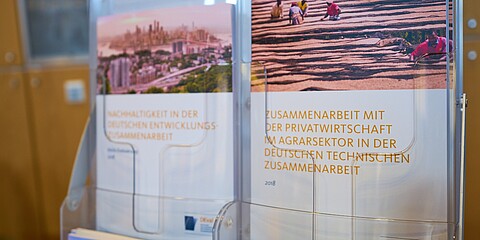
Publikationen
Hier finden Sie Evaluierungsberichte, Synthesestudien, Baseline-Berichte, Reviews, Surveys und Studien, „Policy Briefs“ sowie Veröffentlichungen von DEval-Mitarbeiter*innen.
Ihre Suche ergab 312 Treffer.

Hier finden Sie Evaluierungsberichte, Synthesestudien, Baseline-Berichte, Reviews, Surveys und Studien, „Policy Briefs“ sowie Veröffentlichungen von DEval-Mitarbeiter*innen.
Ihre Suche ergab 312 Treffer.